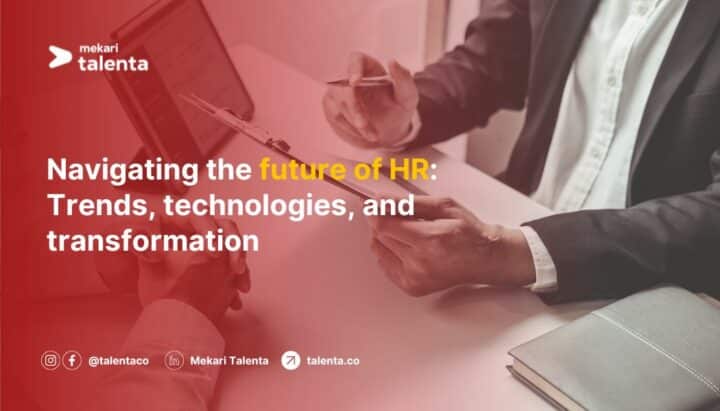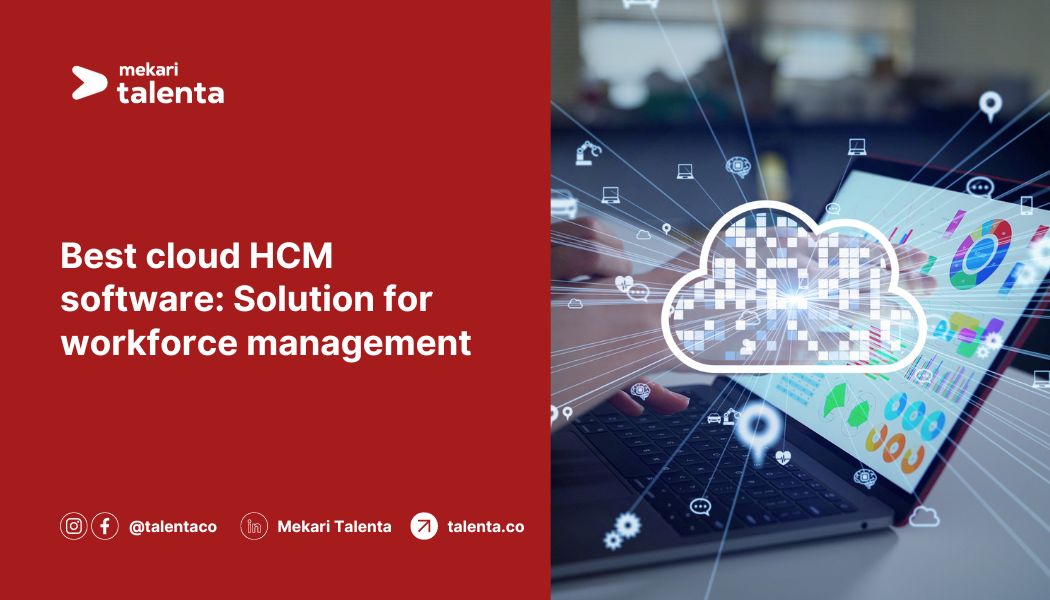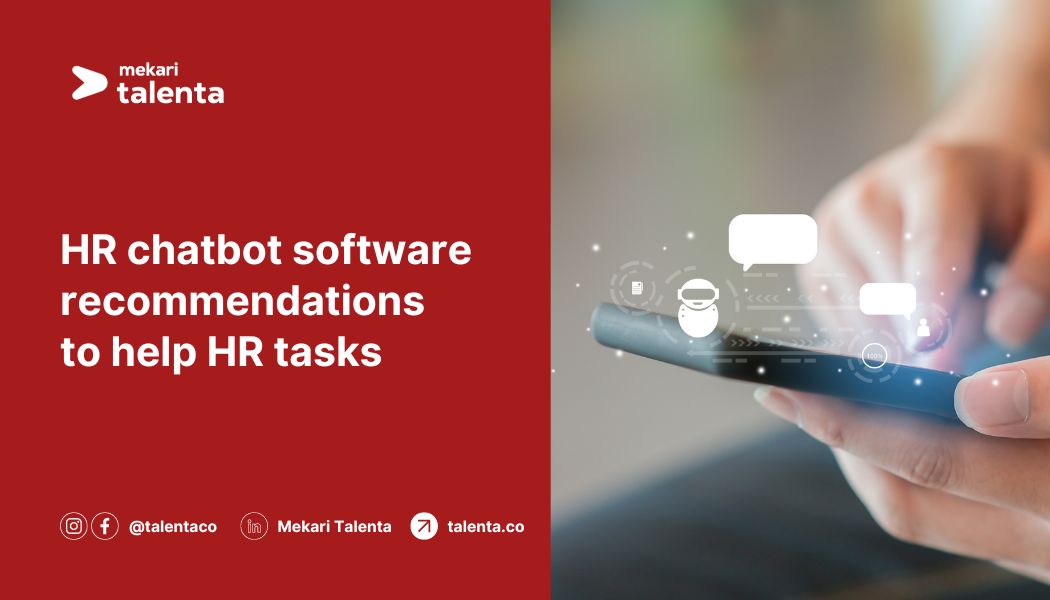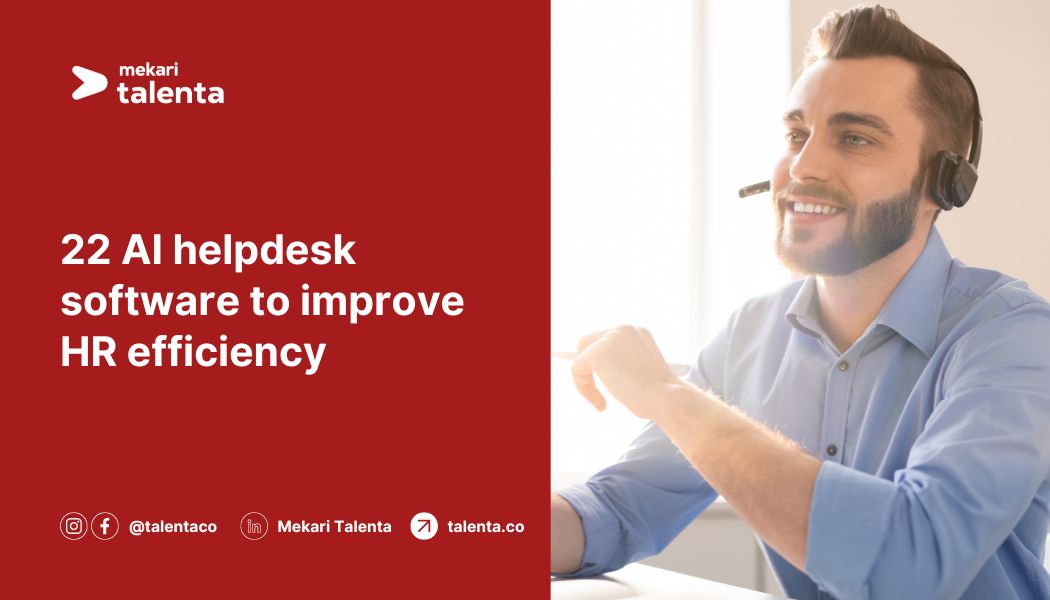The future of HR has changed drastically since pandemic era. The rising of remote and hybrid working has made HR professionals restructure the way they work.
As remote working paved its way to reshape how HR function, the rise of AI technology and now generative AI also became a challenge for business to adapt.
How should HR prepare for today’s challenge and perhaps into the future? What kind of trends will be in the forthcoming days? Read on to learn more about it.
The changing roles of HR in the future
HR roles will surely change in the future and technologies play an important role. This has made their responsibilities evolve into something more meaningful.
There are new demands and also expectations within HR departments thus requiring new skill sets to adapt in a technology driven environment.
Evolution in HR responsibilities
Nowadays, HR professionals are increasingly involved in change management processes, helping organizations adapt to evolving market conditions, technological advancements, and shifts in business strategy.
For starters, HR now focused on enhancing the overall employee experience, ensuring that employees feel valued and engaged. Employee experience is also predicted to become a trend in 2024.
The role of employee experience itself includes providing opportunities for professional development, work-life balance, and a positive workplace culture.
Not only that, the rise of technology integration also plays a big part on how HR can evolve. HR is now adopting advanced technologies such as AI, data analytics, and automation to streamline HR processes.
These technologies can assist in tasks like payroll, benefits administration, and data-driven decision-making.
In addition, as employee well-being becomes a top priority, HR is also taking on the responsibility of promoting mental health, stress management, and work-life balance within organizations.
As pandemic began to raise awareness of the importance of mental health, HR started implementing policies that can help workers to manage between their work and their life better.
Strategic role in business growth
The future of HR is transitioning from a predominantly administrative function to a strategic partner in business growth.
HR leaders are aligning HR strategies with overall business objectives to drive success. Some of the strategic roles that HR now implement include talent planning, decision making based on data, maintaining the organizational culture and changes within the organization.
With talent planning, HR plays a critical role in talent forecasting, ensuring that an organization has the right people with the right skills to achieve its goals. This involves workforce planning, succession planning, and skill gap analysis.
Meanwhile in data-driven decision making process, HR is leveraging data analytics to make informed decisions about recruitment, performance management, and employee development. This strategic use of data helps optimize human capital investments.
HR is also responsible for cultivating and maintaining a positive organizational culture that aligns with the company’s values and goals. A healthy culture can attract and retain top talent and enhance overall business performance.
Talent acquisition and retention partner
HR’s role in talent acquisition extends beyond traditional recruitment to building employer branding, creating an attractive employee value proposition (EVP), and using data to optimize hiring processes.
It is because retaining top talent is crucial in a competitive job market. So in order to do that, HR focuses on employee engagement, career development, and providing opportunities for skill enhancement to reduce turnover.
Nowadays, HR professionals are increasingly involved in succession planning, identifying high-potential employees, and creating pathways for their development within the organization.
As a part of their program, employee feedback and surveys are used to gauge satisfaction and make improvements in areas that impact retention and job satisfaction.
The future of HR will continue to evolve in response to changing workforce dynamics, technological advancements, and shifting business priorities.
HR professionals will be at the forefront of shaping company culture, driving organizational growth, and ensuring that businesses have the talent they need to succeed in a rapidly changing world.
Cutting-edge HR tools and technologies
Technology has continued to play a big role in the future of HR, no matter how we work. There are countless innovations that help make the job easier. For example, user-friendly automation, generative artificial intelligence (AI), and multiple tools to put more control for the employee, allowing them to monitor performance.
This can make HR teams create better strategies for the company and its employees. Here are some of the tools and technologies.
Automated data management
One of the impactful HR technology advancement is automation. In this case, automated data management is available to enable employees to manage tasks and employee data more easily.
This can be done with HR software where an effective implementation can provide HR user-friendly experience and seamless data analysis for better decision making process. With this, HR now are able to focus more on strategies rather than just administrative work.
Mobile app for employees
Some HR softwares have the ability to allow the employees to do their administrative needs independently, from attendance, requesting time-off and reimbursement, looking through their shift schedule, the list goes on.
By enabling this, you can give your employees more flexibility and also allow them to access all their needs without hassle and layers of approval.
Career and strategic workforce planning
Employees’ career path needs to be plotted strategically. Strategic workforce planning is a technology that has a capability to transform how business needs meet its talent needs while also addressing the future prospect.
Generative AI in HR
Generative AI can significantly benefit HR in companies by streamlining processes and improving decision-making.
It can automate tasks like resume screening and candidate matching, making recruitment more efficient. AI-powered chatbots can enhance the onboarding experience by providing quick and accurate responses to employee queries.
Additionally, generative AI can analyze large volumes of employee feedback data, helping HR identify trends and areas for improvement.
Overall, it empowers HR professionals to focus on strategic tasks, fosters better communication with employees, and enables data-driven decisions to enhance workforce management and employee satisfaction.
Global HR trends shaping the future of HR
The rapidly evolving technology makes it possible for global HR trends to continue to rise and shape the business as a whole. Some of the trends that happened currently are down below.
Remote and hybrid work arrangements
There are two work arrangements that can be implemented in the organization which are:
- Remote Work: The COVID-19 pandemic accelerated the adoption of remote work. Many organizations have realized that employees can be just as productive working from home or other remote locations. This trend is likely to continue, allowing employees to have more flexibility in where and how they work.
- Hybrid Work: Hybrid work models combine in-office and remote work. They provide employees with the flexibility to choose when to work from the office and when to work remotely. This arrangement can enhance work-life balance and reduce commuting time.
Diversity, equity, and inclusion (DEI) initiatives
Organizations are increasingly recognizing the importance of fostering diverse and inclusive workplaces. DEI initiatives involve creating an environment where employees from all backgrounds feel valued and have equal opportunities for growth.
This trend aims to combat discrimination, promote equality, and harness the benefits of diverse perspectives and experiences.
Continuous learning and upskilling
Rapid technological advancements are reshaping job roles and skills requirements. To stay competitive, companies are investing in continuous learning and upskilling programs for their employees.
This involves providing opportunities for training, development, and reskilling to keep the workforce relevant in an evolving job market.
Employee well-being and mental health support
Employee well-being is a top priority for organizations in the future of HR. The pandemic highlighted the importance of mental health support, as remote work and other stressors took a toll on employees.
Companies are now offering a range of well-being programs, from mental health resources to fitness and wellness initiatives, to support their staff’s overall health and happiness.
The gig economy and flexible work arrangements
The gig economy, characterized by short-term contracts and freelancing, is expanding.
Many individuals are opting for freelance or gig work to gain flexibility and autonomy in their careers.
Organizations are adapting to this trend by hiring gig workers for specific projects and offering flexible work arrangements to attract and retain talent.
These trends reflect a changing landscape in which work is becoming more flexible, inclusive, and focused on employee well-being and development.
HR professionals play a crucial role in implementing strategies to navigate these trends successfully and ensure that their organizations remain competitive and attractive to a diverse and evolving workforce.
Five key areas impacting the future of HR
In order to adapt, there are 5 key areas that need to be monitored because their impact plays a huge role in shaping a company’s HR future.
HR’s role in organizational culture
HR is increasingly recognized as a key driver of organizational culture. It plays a vital role in defining, promoting, and sustaining the culture of a company.
HR professionals are responsible for aligning the organization’s values and mission with its practices, policies, and employee behaviors. They often work to create a culture that fosters inclusivity, employee engagement, and ethical behavior.
The evolution of performance management
Traditional annual performance reviews are evolving into more agile and continuous performance management processes.
Companies are shifting towards regular feedback, goal setting, and coaching conversations between managers and employees.
This approach allows for real-time adjustments, better employee development, and a focus on outcomes rather than process.
Adaptive workforce planning
The workforce is becoming more dynamic and flexible. HR professionals are now engaged in adaptive workforce planning, which involves anticipating and responding to changing talent needs.
This includes workforce analytics, skills gap analysis, succession planning, and strategies for managing a diverse and evolving workforce.
HR’s role in fostering innovation
HR departments are increasingly tasked with fostering a culture of innovation within organizations.
This involves not only hiring innovative talent but also creating an environment where employees are encouraged to propose new ideas and take calculated risks.
HR can support innovation by promoting cross-functional collaboration, offering training in creative problem-solving, and recognizing and rewarding innovative contributions.
Employee experience as a competitive advantage
Employee experience has become a crucial factor in attracting and retaining top talent.
HR is focused on creating a positive and holistic employee experience, which encompasses everything from the recruitment process to onboarding, development, well-being, and offboarding.
A great employee experience can lead to increased engagement, productivity, and loyalty, giving organizations a competitive edge.
These areas reflect the changing landscape of HR, where the function is moving beyond traditional administrative tasks to become a strategic partner in shaping organizational culture, fostering innovation, and enhancing the overall employee experience.
Adapting to these trends is essential for HR professionals to meet the evolving needs of both employees and organizations in the future.
The future of the employee life cycle
Employee life cycle is not just about recruiting talents just to fill an empty space within the company.
It is a process that can define the company’s future and how one company is able to plan employee’s sustainability and retain their top talents in the whole recruitment process.
Some key aspects that need to be considered are down below.
Redefining recruitment and onboarding
In the future of the employee life cycle, recruitment and onboarding processes are evolving to be more inclusive, efficient, and personalized.
This includes leveraging technology such as AI and data analytics to improve candidate sourcing and selection.
Onboarding is shifting towards a more comprehensive experience that helps new hires integrate into the company culture, understand their roles, and connect with colleagues.
Employers are focusing on creating a positive first impression to boost retention and engagement.
Continuous learning and development
Lifelong learning and development are becoming central to the employee life cycle. Organizations are investing in ongoing training and upskilling to keep employees competitive in a rapidly changing job market.
This includes personalized learning paths, microlearning modules, and access to resources that empower employees to acquire new skills and stay relevant in their roles.
Performance assessment and feedback
Traditional annual performance reviews are giving way to continuous performance assessment and feedback mechanisms.
Managers are encouraged to have regular check-ins with employees to discuss progress, set goals, and provide constructive feedback.
Data-driven approaches are being used to measure performance more objectively, and the focus is shifting towards development and growth rather than just evaluation.
Employee offboarding and alumni networks
The offboarding process is gaining importance as organizations recognize its role in maintaining positive relationships with departing employees.
Offboarding includes exit interviews to gather valuable feedback, assistance with transitioning to new roles or retirement, and the opportunity to join alumni networks.
Alumni networks help maintain connections with former employees, which can be beneficial for future recruitment, referrals, and business partnerships.
These aspects reflect a shift towards a more employee-centric approach throughout the entire employee life cycle.
By prioritizing recruitment, onboarding, continuous learning, ongoing feedback, and offboarding in a strategic and personalized manner, organizations can better engage, develop, and retain talent while adapting to the evolving needs of employees in the future workplace.
Data privacy and security in HR
Data privacy and security in HR are critical aspects of managing sensitive employee information while ensuring compliance with data protection regulations.
Every company needs to know the importance of safeguarding employee data. For example, ensuring the privacy of this information is essential for HR.
HR departments collect and process a wide range of personal data about employees, including names, addresses, Social Security numbers, financial information, health records, and more.
Not only that, HR must adhere to data protection laws. In Indonesia, we have the 2016’s Minister Regulation No. 20 about Personal Data Protection (PDP).
These regulations require organizations to have clear policies and procedures for handling and protecting employee data.
As a matter of fact, obtaining informed consent from employees to collect and process their personal data is crucial.
Employees should be aware of what information is being collected, why it’s being collected, and how it will be used. Hence, company can build trust through transparent data practices.
To add layers of security, HR system should have strict access controls in place. Only authorized personnel like HR and CEO should have access to sensitive employee information, and this access should be monitored and audited regularly.
Ensuring data privacy and security in HR is not only essential for protecting sensitive information but also for maintaining trust with employees and complying with legal requirements.
HR departments should collaborate with IT and legal teams to establish and maintain robust data privacy and security practices.
Conclusion and key future HR trends to embrace
These key future trends of HR represent the evolving landscape of human resources and the strategies companies can embrace to stay competitive and responsive to the changing needs of the workforce.
Personalization of HR services
Personalization involves tailoring HR services to meet the unique needs and preferences of individual employees.
This trend recognizes that a one-size-fits-all approach may not be effective in a diverse workforce.
HR can use technology and data analytics to offer personalized training and development plans, benefits packages, and career paths.
This approach enhances employee engagement and satisfaction by acknowledging their individuality.
The rise of HR analytics and predictive HR
HR analytics involves using data to make informed decisions about workforce planning, recruitment, talent management, and employee engagement.
Predictive HR takes it a step further by using data-driven insights to anticipate future trends and challenges.
By analyzing historical data, HR can identify patterns and make proactive decisions, such as predicting turnover or skills gaps, to better align the workforce with the organization’s goals.
Agile HR practices
Agile HR practices are adapted from agile methodologies commonly used in software development.
They involve a more flexible and iterative approach to HR processes and project management. Agile HR allows teams to respond quickly to changing business needs, experiment with new approaches, and collaborate more effectively.
This approach is particularly valuable in fast-paced industries and during periods of uncertainty.
Employee-driven HR technology adoption
HR departments are increasingly involving employees in the selection and adoption of HR technologies.
Employee feedback and preferences are considered when choosing software and tools for HR processes, such as self-service portals, mobile apps, and collaboration platforms.
This approach ensures that the technology aligns with the needs and preferences of the workforce, leading to higher adoption rates and increased efficiency.
HR’s role in fostering a culture of innovation
HR plays a critical role in creating an organizational culture that encourages innovation.
This involves hiring and developing talent with creative and problem-solving skills, promoting a growth mindset, and implementing practices that reward and recognize innovative contributions.
HR can also facilitate cross-functional collaboration and provide the necessary resources for innovation to thrive.
Embracing these trends can help HR departments become more strategic partners within organizations.
By adopting personalized approaches, leveraging data-driven insights, and embracing agility and innovation, HR can better support employee development, foster a positive workplace culture, and contribute to the overall success of the company in a rapidly changing business environment.
To help you prepare for the future trends of HR, you can start by adopting HR software like Mekari Talenta to help maximize your HR administrative work plus strategizing many aspects in your organization like performance management, manpower planning, talent development, and many more.
If you like to try Mekari Talenta’s software demo for free, you can sign up here and have a discussion with our team regarding your HR needs.









